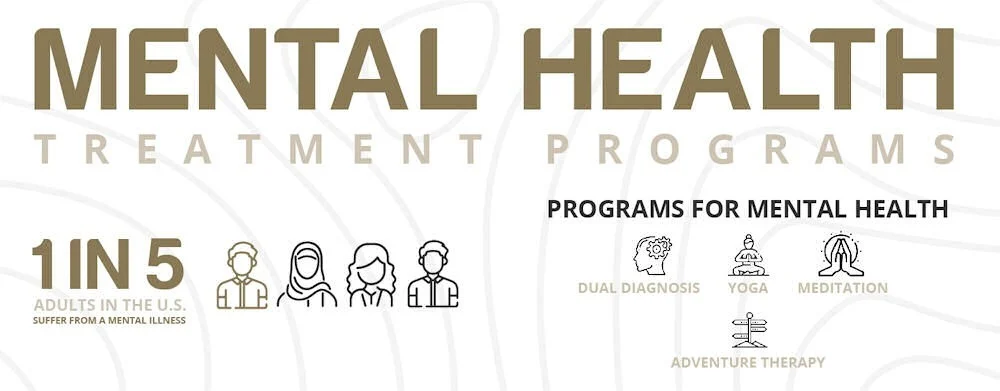
Welcome to Westwind Recovery®®, your premier treatment center for mental health rehab in the vibrant city of Los Angeles. Nestled in the heart of Southern California, Westwind Recovery®® offers a serene and supportive environment where individuals can embark on their journey to mental wellness. Our facility is renowned for its comprehensive care and personalized treatment plans, expertly crafted to meet the unique needs of each client.
At Westwind Recovery®®, we blend cutting-edge therapeutic methods with holistic approaches, ensuring a balanced and effective path to healing. Join us in Los Angeles, where a brighter, healthier future awaits you.
What Does a Mental Health Treatment Program Look Like?
A mental health rehab in Los Angeles is a structured plan designed to help individuals manage and improve their mental health conditions. These programs can vary widely in terms of their approach, duration, and setting, but they generally include a combination of therapies and clinical services tailored to the individual’s needs. Key components often include:
- Therapy Sessions: This can involve individual therapy, group therapy, or family therapy, using approaches like cognitive-behavioral therapy (CBT), dialectical behavior therapy (DBT), or other evidence-based methods.
- Medication Management: For some individuals, medication may be prescribed to help manage symptoms of mental health conditions such as depression, anxiety, or bipolar disorder.
- Support Groups: These provide a space for individuals to share experiences and gain support from others facing similar challenges.
- Educational Workshops: These sessions aim to educate individuals about their conditions and teach coping strategies and life skills.
- Holistic Approaches: Some programs incorporate holistic methods such as mindfulness, meditation, yoga, or art therapy to support mental well-being.
- Crisis Intervention: Immediate help and intervention for individuals experiencing a mental health crisis.
These programs can be offered in various settings, including outpatient clinics, inpatient facilities, or community centers, and are often tailored to specific populations, such as adolescents, rehab for veterans, or individuals with substance use disorder.
What Types of Mental Health Disorders Does Westwind Treat?

At Westwind, we offer specialized treatment programs designed to effectively address a wide range of mental health disorders through our partial hospitalization mental health, intensive outpatient, and outpatient treatment centers. Our tailored approach ensures that each client receives the most appropriate level of care for their specific needs.
Our programs can successfully treat various mental health disorders, including:
Our approach to treating depression is grounded in providing comprehensive therapeutic interventions tailored to each individual’s unique needs. Our treatment plans often incorporate cognitive-behavioral therapy (CBT), which focuses on identifying and changing negative thought patterns and behaviors that contribute to depressive symptoms. Additionally, interpersonal therapy (IPT) is employed to address relationship issues and improve communication skills, helping individuals navigate social challenges that may exacerbate depression.
Medication is another critical component of our depression treatment in Los Angeles, where our experienced medical professionals carefully prescribe and monitor medications to alleviate symptoms and support overall treatment goals. Each client’s treatment plan is personalized, ensuring that all interventions are aligned with their specific needs and circumstances.
Therapy plays a crucial role in addressing underlying issues, such as unresolved trauma or chronic stress, that may be contributing to depression. Through a supportive and nurturing environment, clients are encouraged to explore these issues in a safe space, fostering healing and personal growth.
We provide a comprehensive approach to treating anxiety disorders, designed to empower individuals to manage their symptoms effectively and regain control over their lives. Our treatment options frequently incorporate CBT, a proven method that helps clients identify and challenge irrational thoughts and behaviors. In addition to CBT, we utilize mindfulness techniques to cultivate present-moment awareness and reduce the impact of stress. These practices are pivotal in helping individuals develop a calmer, more centered state of mind.
Exposure therapy is another essential component of our treatment strategy. This approach gradually and safely exposes individuals to feared situations, enabling them to build resilience and decrease anxiety over time. Medication is available for those who may benefit from pharmacological help, with our medical team closely monitoring and adjusting prescriptions to ensure optimal results.
Every treatment plan is personalized, addressing the unique triggers and life circumstances of each client. This individualized approach is crucial in tackling the underlying issues that may contribute to anxiety, such as past trauma or chronic stress.
A cornerstone of our strategy is focused on medication, where our experienced medical team works closely with clients to carefully prescribe and adjust medications that help stabilize mood swings and reduce the intensity of manic and depressive episodes. This is complemented by CBT, which assists clients in recognizing and altering negative thought patterns and behaviors.
Psychoeducation is another vital component of our treatment for bipolar disorder. Through this, clients gain a deeper understanding of their condition, learning about the nature of bipolar disorder, the triggers that may lead to mood episodes, and effective ways to manage these triggers. This knowledge empowers clients to take an active role in their treatment journey.
In addition to these interventions, we emphasize lifestyle modifications as a critical part of managing bipolar disorder. This includes guidance on establishing regular sleep patterns, maintaining a balanced diet, and incorporating exercise and stress-reduction techniques into daily routines. These lifestyle changes are essential in supporting overall mental health and stability.
Trauma-informed care is the foundation of our approach, ensuring that every interaction is conducted with an understanding of the trauma’s impact. This approach underpins therapies such as CBT, which assists clients in identifying and reframing distorted thought patterns related to their traumatic experiences. Additionally, we utilize eye movement desensitization and reprocessing (EMDR), a powerful technique that helps clients process and integrate traumatic memories, reducing their emotional impact.
Group therapy is another integral component of our PTSD treatment, providing a supportive environment where clients can connect with others who have similar experiences. This communal setting fosters empathy and reduces feelings of isolation.
Each client’s treatment plan is unique, addressing the specific nature of their trauma. This individualized care is crucial for effectively processing traumatic experiences. Our nurturing environment at Westwind supports clients throughout their healing journey, offering a safe space to explore and understand their mental health issues.
Our approach to treating substance use is founded on evidence-based treatments that are meticulously crafted to meet the individual needs of each client. CBT plays a pivotal role in our treatment, helping clients identify and alter negative thought patterns and behaviors. Alongside CBT, we employ motivational interviewing, a client-centered approach that enhances motivation and commitment to change.
Our programs also integrate the principles of 12-step programs, offering clients a structured framework to guide their journey to sobriety. These group-based sessions provide a supportive community, fostering connection and accountability among peers who share similar experiences.
Every treatment program at Westwind is personalized, acknowledging the unique circumstances and challenges each client faces. Our nurturing and supportive environment is designed to encourage personal growth and provide a safe space for clients to grow in their journey. We are committed to not only eliminating substance dependency but also fostering long-term sobriety.
Westwind also specializes in dual diagnosis treatment, which addresses the unique challenges faced by individuals experiencing co-occurring mental health and addiction. Our dual diagnosis programs integrate therapies that combat both conditions simultaneously, ensuring that clients receive holistic and comprehensive care. By focusing on the interplay between mental health and substance abuse, we help individuals with proper healing and improved mental well-being.
Our dedicated team of professionals is committed to supporting each client on their journey to recovery, providing the tools and resources needed to achieve sustainable mental health and a brighter future.
Features of Our Mental Health Treatment Programs

We make sure to provide clients with the appropriate resources they need at every step of the process, all the way to sober living. If you also struggle with drug or alcohol abuse, medically supervised detox is the first step.
Here’s a more detailed look at the features commonly found in our mental health treatment programs:
- Assessment and Diagnosis: The program typically begins with a comprehensive assessment to understand the individual’s mental health status, history, and unique needs. This helps in creating a personalized treatment plan.
- Individual Therapy: One-on-one sessions with a therapist to explore thoughts, feelings, and behaviors. Techniques like cognitive-behavioral therapy (CBT) or psychodynamic therapy may be used to address specific issues.
- Group Therapy: Facilitated by a therapist, these sessions allow individuals to share experiences and provide supportive feedback to each other. Group therapy can help reduce feelings of isolation and provide different perspectives.
- Family Therapy: Involves family members in the treatment process to improve communication, resolve conflicts, and engage in the individual’s holistic rehab.
- Medication Management: Psychiatrists or medical professionals may prescribe and monitor medications to help manage symptoms. Regular follow-ups ensure the effectiveness and adjust dosages as needed.
- Psychoeducation: Educational sessions that provide information about mental health conditions, treatment options, and coping strategies. This empowers individuals and their families to make informed decisions.
- Skill-Building Workshops: Focus on developing life skills such as stress management, problem-solving, communication, and emotional regulation to enhance daily functioning.
- Holistic and Complementary Therapies: Incorporates practices like mindfulness, yoga, meditation, art therapy, or music therapy to promote overall mental health and reduce stress.
- Support Groups: Peer-led groups that offer a safe space for sharing experiences and advice. They can be specific to certain conditions or demographics, such as mental health support or LGBTQ+ groups.
- Crisis Intervention Services: Immediate help for individuals experiencing acute mental health crises, including 24/7 hotlines or emergency counseling.
- Aftercare Planning: Develop a plan for continued counseling and relapse prevention after the program ends. This may include follow-up appointments, ongoing therapy, or community resources.
- Case Management: Coordination of care among different service providers to ensure comprehensive treatment, including assistance with housing, employment, or education.
These features are designed to provide a holistic approach to mental health care, addressing both the psychological and practical aspects of treatment.
Who Would Benefit from Mental Health Treatment?
Individuals experiencing symptoms of mental health disorders, would greatly benefit from a mental health treatment program. These programs provide essential treatment for those struggling with substance use disorders and individuals with co-occurring mental health disorders, offering a comprehensive treatment approach. By participating in a structured program, individuals gain access to personalized care and professional guidance, which are crucial in navigating the complexities of mental health challenges.
The therapeutic environment and evidence-based interventions help participants develop effective coping strategies, manage triggers, and work toward achieving mental wellness. Overall, mental health treatment programs are instrumental in fostering improved mental health and enhancing overall well-being, offering individuals the tools needed for a healthier, more fulfilling experience.
Our Mental Health Treatment Centers
Each of the locations we oversee comes with swimming pools and jacuzzies. Not only do we provide memberships and transportation to our fully-equipped gym, but also we have a registered dietician to ensure that the workout is complimented by a proper diet. We offer nutrition groups, body positivity groups, yoga, and recreational activities such as hikes and regular outings. All of these are geared towards providing clients with the environment they need to recover.
Along the way, Westwind Recovery®® has crafted unique treatment services to cater to the needs of our clients. Successful treatment means treating the whole body or holistic therapy. Often, mental health issues arise due to a past traumautic experience or for reasons unknown to the individual. Our programs get at the heart of your issues, providing you with innovative ways to improve your overall mental health.
When your mind is healthy, then you are better able to avoid and overcome substance abuse or addiction. Therefore, we create a setting at our facilities that supports our mental health treatment programs. Because each strengthens the other, you get the best of both worlds as you work to regain control.
Find Help at our Mental Health Treatment Facility!

One would be hard-pressed to find a luxury rehab center in California that does as much for the body, mind, and spirit as Westwind! You are certain to find our mental health rehab in Los Angeles, alongside our superb facilities, to be the ideal solution to your treatment concerns.
We are committed to a holistic and comprehensive treatment approach that not only aims to reduce symptoms related to mental health disorders but also promotes overall health and happiness. By equipping clients with effective coping strategies and therapeutic tools, we empower them to move forward with resilience and lead more fulfilling lives. Contact Westwind Recovery®® for addiction and mental health treatment. Gain back the life that you deserve! Call us to discuss mental health treatment programs in Los Angeles today!

Dr. Deena is the Chief Clinical Officer of Westwind Recovery®, an award-winning outpatient treatment center in Los Angeles where she oversees the clinical and administrative program and treatment methods. Dr. Deena is a doctor of psychology and licensed clinical social worker since 1993. LCSW #20628. Originally from the East Coast, Dr. Deena has worked running treatment centers, worked as a therapist in psychiatric hospitals as well as school settings and currently has a thriving private practice in the LA area. Dr. Deena has appeared regularly on the Dr. Phil Show as an expert since 2003. She has also been featured on many other TV shows, podcasts and has contributed to written publications as well as podcasts.




